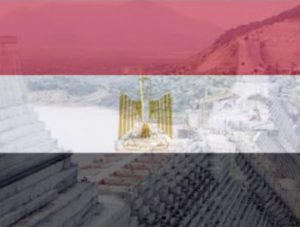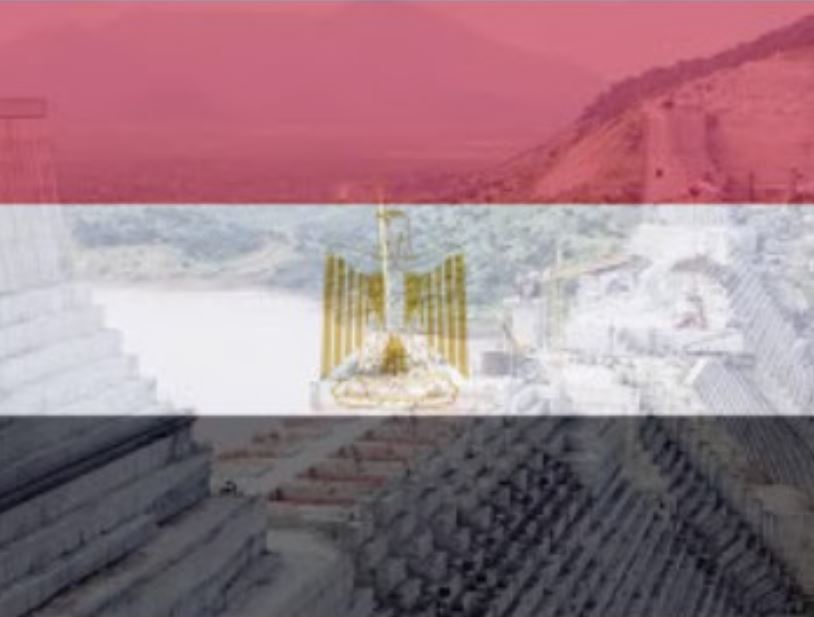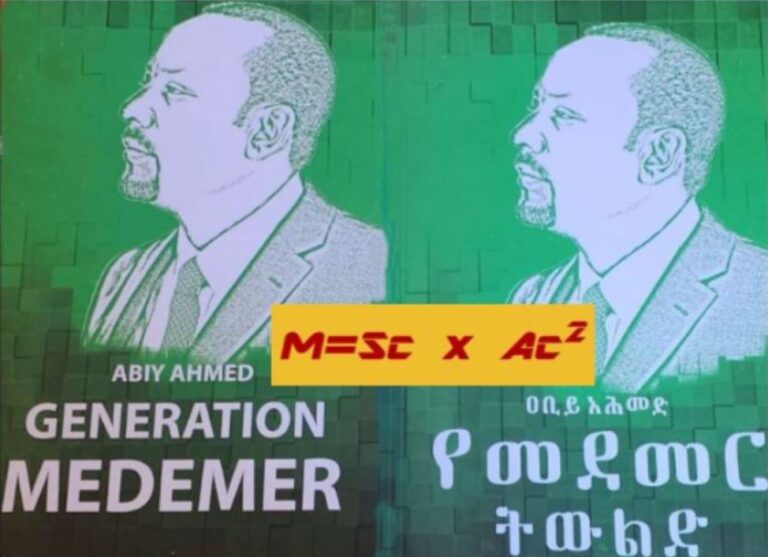Is Egypt Secretly Planning a Proxy War on Ethiopia?
 Author’s Note: In this commentary, I shall argue the Egyptian Government is in the first phase of its PROXY WAR against Ethiopia with the short-term strategic objective of sabotaging the scheduled July initial filling of the Grand Ethiopian Renaissance Dam (GERD). To successfully wage a proxy war on Ethiopia, I believe Egypt will seek to: 1) exploit the division in Sudan’s transitional military-civilian government between hard line military officers sympathetic to Egypt and the technocrats led by Prime Minister Abdalla Hamdok; 2) recruit key Sudanese military and intelligence leaders to whip up Sudanese nationalism against an “Ethiopian invasion” in the recent border conflict; 3) destabilize the fragile Sudanese military-civilian coalition and pave the way for a military coup that will bring to power leaders who will support Egypt’s opposition to the GERD, and 4) make arrangements with the Sudanese military for the establishment of a forward operating base in the Sudan for a strike on the GERD and invasion of Ethiopia.
Author’s Note: In this commentary, I shall argue the Egyptian Government is in the first phase of its PROXY WAR against Ethiopia with the short-term strategic objective of sabotaging the scheduled July initial filling of the Grand Ethiopian Renaissance Dam (GERD). To successfully wage a proxy war on Ethiopia, I believe Egypt will seek to: 1) exploit the division in Sudan’s transitional military-civilian government between hard line military officers sympathetic to Egypt and the technocrats led by Prime Minister Abdalla Hamdok; 2) recruit key Sudanese military and intelligence leaders to whip up Sudanese nationalism against an “Ethiopian invasion” in the recent border conflict; 3) destabilize the fragile Sudanese military-civilian coalition and pave the way for a military coup that will bring to power leaders who will support Egypt’s opposition to the GERD, and 4) make arrangements with the Sudanese military for the establishment of a forward operating base in the Sudan for a strike on the GERD and invasion of Ethiopia.
In supporting my analysis, I offer historical facts on centuries-long Egyptian ambitions to totally control the Nile River and paralyze Ethiopia from using any Nile River waters for its development.
“Letting loose the dogs of war” on Ethiopia?
For decades, Egypt has threatened to go to war with Ethiopia over use of Nile waters.
In September 2019, President Abdel Fattah El-Sisi told the U.N. General Assembly, “The Nile is a question of life, a matter of existence to Egypt.” In other words, the “Nile question” is a matter of life and death for Egypt.
In 2013, Egyptian president Mohammad Morsi declared, “As president of the republic, I confirm to you that all options are open. If Egypt is the Nile’s gift, then the Nile is a gift to Egypt… If it diminishes by one drop, then our blood is the alternative.” In other words, the Nile River will be a river of blood and obviously not Egyptian.
In 1979, Egyptian president Anwar Sadat threatened to go to war with Ethiopia dramatically declaring, “We are not going to wait to die of thirst in Egypt, we’ll go to Ethiopia and die there.” History supports Sadat’s prophesy. Tens of thousands of Egyptian soldiers (see references below) invaded Ethiopia in the 1870s and were “totally annihilated”.
On May 12, 2020, Ethiopia reiterated its long declared policy that it will start filling the GERD in July, 2020.
In response, on May 19, 2020, El-Sisi directed Egyptian armed forces to be on the “highest state of alert”.
If Egypt were to be foolish enough to invade Ethiopia, it would not be the first time; nor would the outcome of such an invasion be much in doubt.
Egypt has had imperial designs on Ethiopia at least beginning in the 1820s when Mohammad Ali Pasha sought to expand his empire throughout sub-Sahara Africa by defeating Sudan, dominating the Red Sea and controlling the port city of Massawa which was part of Ethiopia. Ali Pasha’s passion was control of the Nile and indeed the principal reason for his invasion of the Sudan. He wanted to make sure there was no interference in the flow of the Nile through the Sudan. But he was unable to reach Ethiopia, the source of the Blue Nile.
In 1875-76, Egypt was determined to militarily subjugate Ethiopia and control the Blue Nile once and for all. Egypt deployed a large army well-equipped and trained army led by European and American officers.
In the Battle of Gundet (1875) and Battle of Gura (1876), Ethiopian forces “completely annihilated an Egyptian expeditionary force”. According to one historian:
The Battle of Gura abolished any practical opportunity for Egypt to gain control over Ethiopia. The heavy Egyptian losses (almost 14,000 men died in three months), the economic damage to the Egyptian economy and, above all, the Egyptian depiction of the Ethiopian warriors as having a demonic character, prevented any future Egyptian invasion of Ethiopia.
I am not terribly worried about an Egyptian land or air war in Ethiopia.
With all due respect to the Egyptian military, its record of military success leaves much to be desired. The 1948 Arab–Israeli War, the Suez Crisis, and the Six-Day War proved disastrous for Egypt.
The 1973 Arab-Israeli War also ended up in an Egyptian defeat, and only through the Camp David Accords was Egypt able to reclaim the Sinai.
Since 2013, Egypt has been involved in its largest military campaign in the Sinai peninsula since its 1973 war with Israel. Egypt deployed 88 battalions with 42,000 soldiers to defeat an ISIS-affiliated insurgency.
In 2018 El-Sisi launched Operation Sinai to “purge the country of terrorists”. However, “despite brutal methods and substantial military effort, the Egyptian government has little to show from the past five-plus years of counterinsurgency operations in the Sinai aside from hundreds of military and civilian casualties and an undeterred adversary.”
If Egypt cannot defeat a few thousand terrorists in 5 years, could it defeat Ethiopia by marching its army or flying its air force 2,300 miles?
But fools have rushed in where angels fear to tread.
In 1812, French Emperor Napoleon invaded Russia with an army of 680,000 men ending in total defeat for France. In 1942, Hitler attacked Stalingrad and ended up with his army of 330,000 men wiped out.
Most instructively, in 1896 Italy invaded Ethiopia with state of the art weapons and a large army and was wiped out in a battle that lasted NOT even a full day! In 1935, Italy returned to avenge its humiliating defeat and extensively used mustard gas against the civilian population. In 1941, Italy suffered another humiliating defeat.
Ethiopian Prime Minister Abiy Ahmed, the 2018 Nobel Peace Laureate, has cautioned the dispute with Egypt over Nile waters could be resolved only through negotiations. He warned if war is waged on Ethiopia by Egypt he “could ready millions of people”.
Egypt would be crossing the proverbial Rubicon River (might I say the Nile River) if it believes it can bring Ethiopia to knees on the use of the Nile waters by waging war. That will be a point of no return – no return to diplomacy, no return to peaceful resolution.
It would be a truly Shakespearean tragedy for Egypt if it were to “Cry “Havoc!” on the Nile and “let slip the dogs of war” on Ethiopia. The outcome is foretold in the words of Mark Antony in Julius Caesar:
And Caesar’s spirit, ranging for revenge,
With Ate by his side come hot from hell,
Shall in these confines with a monarch’s voice
Cry “Havoc!” and let slip the dogs of war,
That this foul deed shall smell above the earth
With carrion men, groaning for burial.
Egypt should heed the wisdom of an old African saying, “If you can’t resolve your problems in peace, you can’t solve them in war.”
“Egypt will defend its interest by all means available”
On February 28, 2020, the Egyptian Government was on social media saber-rattling and beating the psychological drums of war against Ethiopia:
All organs of the Egyptian State will continue to give this subject the great attention it deserves in the exercise of their national responsibilities in defending the interests, potential and future of the Egyptian people by all means available.
What did Egypt mean by its threat to “defend its interest in the Nile by all means available”?
As I explained in my March 1 commentary, Egypt intended to convey a number of sinister and intimidating messages to Ethiopia:
I. Egypt will conduct war on Ethiopia — a war of arms, a war of words, diplomatic wars, a proxy war and psychological warfare.
Propaganda war
I must admit Egypt today has control of the commanding heights in the war of words (propaganda). Every single day there are articles in various legacy outlets and social media platforms (arranged by Egyptian government paid public relations firms, Egyptian officials and intellectuals, internet trolls, etc.) pleading the cause of Egypt victimized by Ethiopia’s insistence on using the Nile waters in violation of international law, agreements and principles of good neighborliness. Ethiopia is depicted in Egyptian disinformation campaigns as an evil country hellbent on destroying Egypt. gypt says Ethiopia wants to sell hydro-power and become rich while Egyptians starve and die of thirst.
Diplomatic war
While Egypt has failed in its military campaigns against Ethiopia, the opposite has been true on the diplomatic front for well over a century.
In the Anglo Italian Protocol of 1891, Britain guaranteed to Egypt “undisturbed flow of the Nile by restricting Italy’s endeavour to control a water project over the Atbara River”, one of the tributaries of the Nile. “This protocol was signed by the colonial powers without taking into account the interest of third parties, most notably Ethiopia.”
In the Anglo-Ethiopian Treaty of 1902, the British tried to bamboozle Ethiopian Emperor Menelik II by claiming the English version of that treaty prohibited Ethiopia from initiating any projects on the Nile River without the permission of Britain and Sudan. The Amharic version of that treaty read, Emperor Menelik II “has entered into the commitment of not giving permission to any work that fully arrests the flow of the Blue Nile.”
In the Anglo- Egyptian Treaty of 1929, super-special rights were granted to Egypt including guarantees of 48cm Nile flow per year, the right to monitor the Nile flow in the upstream countries and the right to veto any construction projects that would affect her interests adversely, among other things.
1959 Nile Waters Agreement Between Egypt and the Sudan guaranteed Egypt 84 billion cubic meters of water measured at Aswan High Dam. It also granted Egypt the right to construct the Aswan High Dam that can store the entire annual Nile River flow of a year.
In 1983, Egypt formed the Ndugu Group Including a number of sub-Saharan countries excluding Ethiopia) with the aim of “creating a multi-good socio-economic solutions beyond consumptive water uses.” The idea was to buy off African countries into supporting Egypt’s claim of birthright to exclusive use of the Nile. The Group fizzled out.
In 2020, El-Sisi, using Donald Trump’s son in law Jared Kushner, managed to get Ethiopia to attend the so-called “Washington Talks” on the GERD. Egypt and the U.S. fabricated an agreement and tried to sweet talk, con and arm-twist Ethiopia into mortgaging its future. Ethiopia told Egypt and the U.S. to shove their fake agreement up their keister.
Egypt has provided diplomatic and military support to invaders of Ethiopia. When Somalia’s Siad Barre invaded Ethiopia in 1977, he got his weapons daily from Egypt. The New York Times reported, “Egyptian plane has been sent almost every day recently with light weapons and ammunition for the hard-pressed Somalis.”
Psychological warfare
Egypt continues to wage psychological warfare against Ethiopia by threatening unspecified military action. Egypt intimates it will undertake a surgical air strike of the GERD.
II. Egypt will actively work to destabilize Ethiopia, including the promotion of asymmetric wars and by meddling in Ethiopian internal matters.
Egypt’s involvement and meddling in Ethiopian affairs has longstanding roots. Egyptian intelligence has funneled money to extremist groups in Ethiopia for decades. For more than one-half century, Egypt has provided financial support and weapons to rebel groups in northern and eastern Ethiopia. That effort continues today as Egypt provides safe haven for criminals and terrorists who have fled Ethiopia after committing crimes against humanity. It is an open secret that various extremists groups continue to receive support directly or indirectly from Egypt. No doubt, Egypt will continue to actively promote ethnic and religious tensions in Ethiopia by providing arms and money to any group who will work with them to destabilize the country. Of course, there is nothing Egypt will not do to undermine or otherwise weaken the government of Prime Minister Abiy Ahmed!
III. Egypt will use diplomatic means to isolate Ethiopia in the region and throughout the continent and the world.
For decades, Egypt has campaigned to isolate Ethiopia politically and economically from the international community. It has succeeded in preventing the World Bank and the International Monetary Fund from extending loans for the GERD or other construction projects and other economic development efforts on the Nile. In March, Egypt got the Arab League to condemn Ethiopia for alleged “infringement of Egypt’s historical rights to Nile waters.” In May, Egypt sent a letter to the U.N. Security Council “protesting Ethiopia’s plan to start filling the reservoir of the controversial Grand Ethiopian Renaissance Dam”. UN Secretary General António Guterres responded by advising Ethiopia and Egypt to resolve their differences within the framework of the “2015 Declaration of Principles on the GERD, which emphasizes cooperation based on common understanding, mutual benefit, good faith, win-win, and the principles of international law.”
Egypt has sought to enlist support from the European Union, various European and African countries to isolate Ethiopia.
Is Egypt planning a proxy war on Ethiopia to stop the GERD?
In my March commentary trying to decipher the meaning of the phrase, “Egypt will defend its interest by all means available”, I argued Egypt will wage a proxy war on Ethiopia. In other words, Egypt will use a neighboring country to destabilize, distract and thwart Ethiopia’s effort to begin the initial filling of the GERD scheduled for July and otherwise prevent the completion of the Dam.
I have come to this conclusion studying open source intelligence materials readily available online and in the legacy media.
Egypt has always sought a forward operating base to launch an attack on Ethiopia.
A Stratfor analysis, the American geopolitical intelligence platform, in 2012 concluded, “Sudanese president Umar al-Bashir has agreed to allow the Egyptians to build a small airbase in Kusti to accommodate Egyptian commandos who might be sent to Ethiopia to destroy water facilities on the Blue Nile… It will be their option if everything else fails.”
Does Egypt today believe “everything has failed” to stop Ethiopia from beginning to fill the Dam in July or complete it?
Al-Bashir is no longer in power but that does not mean Egypt has abandoned its plan to use the Sudan in any way it can to advance its military objectives. There are the Al-Bashir old guards still around ready to serve at Egypt’s beck and call.
Egypt understands and wants to exploit the fragile political situation in the Sudan. Open source intelligence sources indicate that Sudan’s transitional military-civilian government is struggling not only to pave the way for free and fair elections in the coming two years but also address the severe economic and social problems facing the Sudanese people today. In much the same way as nearly every country in the world, Sudan is facing the scourge of COVID-19. Sudan is facing intense financial pressure on households, soaring inflation and budget deficits. While US sanctions against the Sudan were lifted in 2017, global commercial banks are not willing to extend loans and the Sudan is “effectively cut off from the global financial system.” In 2019, the World Bank threatened to deny any new loans until the Sudan paid off $16 billion in arrears to financial institutions and sovereign creditors. Sudan’s complex economic problems have been fully documented.
There have been recent border on the Ethiopian-Sudan border. The alleged attack occurred in the eastern Sudanese province of al-Qadarif by “an Ethiopian militia group penetrated Sudan’s border to fetch water at the Atbara river.” The Ethiopian Government has called for a joint investigation of the incident and offered its “deep sympathy and condolences to the families of the victims of the conflict along the Ethiopia and Sudan border.” Regardless, Ethiopia and the Sudan can deploy a joint force to patrol the border area to prevent any violence.
However, I believe Egypt will try to expand the border conflict in any way it can.
My analysis of the open source intelligence is:
1) There are military elements in the Sudanese military-civilian coalition who are supportive of Egypt’s position to thwart the completion of the GERD. Egypt wants to strengthen them and enable them to take a dominant role in the current coalition so that they can serve its interests in preventing the completion of the GERD.
2) Egypt is actively recruiting elements of the Sudanese military to make a move on the military-civilian coalition by drumming up nationalist sentiment against Ethiopia and possibly engineer a coup d’état. Special Note: On March 5, 2020, Sudan “expressed reservation” on “Arab League support for the water rights of Egypt.” On March 9, 2020, an assassination attempt was made on Sudanese Prime Minister Abdalla Hamdok.
3) Egypt sees an opportunity to expand the border conflict and plunge the two countries into an all-out war.
4) Egypt will engage mercenaries in the al-Qadarif area to stoke up the conflict so that an all-out war occurs between Ethiopia and the Sudan.
5) The current border conflict occurred between Ethiopia and the Sudan for the first time in 50 years even though the countries share a 1,600-mile-long border and have yet to have clearly demarcated borders.
So, what made the difference in getting the two countries to be tangled up in a border war?
The difference is EGYPT!
Egypt wants to use the Sudan as its pawn in its Game of Nile River Hegemony.
Egypt wants the Sudan to fight a proxy war for it against Ethiopia and in the process delay or prevent the completion of the GERD Dam.
I believe Egypt has a secret plan to get the Sudan and Ethiopia mired in a war of attrition which will deplete them both and give Egypt an opportunity to control them.
It is the classic divide and rule. Stoke up Sudanese nationalism and divide the military-civilian coalition. Divide Ethiopia and the Sudan by creating a border conflict and watch the two countries dissipate in a game of attrition and ultimately proclaim victory on both Ethiopia and the Sudan.
That has been the fundamental policy and strategy of Egypt since the days of Muhammad Ali Pasha in the 1820s.
THE BOTTOM LINE: Egypt wants to use a weak Sudan to fight its dirty proxy war against Ethiopia to control the Nile.
EGYPT WILL FAIL!






